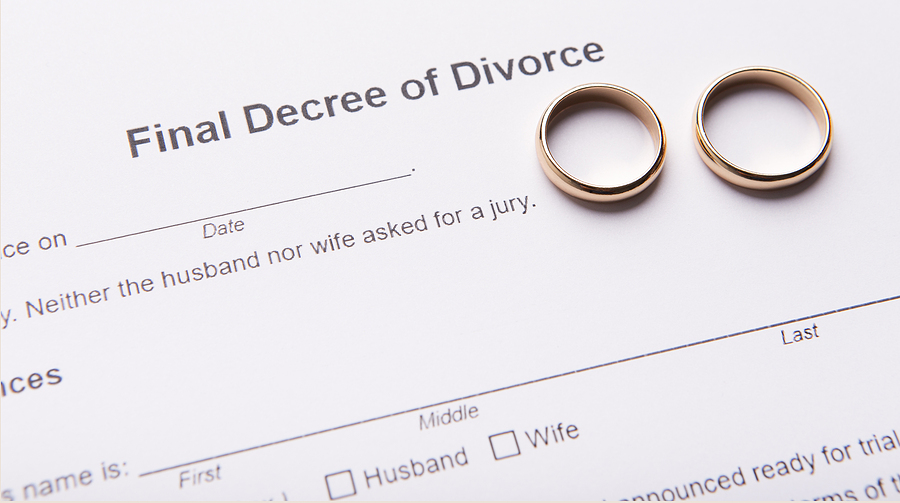While the divorce process is generally a straightforward one, there are certain situations where you may need to take your spouse to court in order to legally sever the marriage. Divorce is a complicated legal process, and there are many different circumstances which may require a courtroom appearance. In some cases, going to court is mandatory for divorcing couples. In other cases, it’s not necessary at all. However, consulting experienced family law attorneys can provide you with valuable guidance and representation throughout the divorce process. Going to court doesn’t necessarily mean that you’ll be divorced quickly. In fact, it could take months or even years for a divorce to become final. By consulting an experienced family law lawyer, you can learn about your options and explore the steps your spouse needs to take in order to legally end the marriage.
Divorce is a complicated process, and while it’s nice to think that you can walk out the door of your home and return as a single person, divorce isn’t as straightforward as you may think. It may take months, even years, to legally complete the process of separating from your spouse. However, there are some circumstances where those six months have already passed, and either you or your spouse needs to take legal action in order to finalize the divorce. In many cases, this is required by law.
How to Divorce Without Going to Court?
Sometimes, it may be possible to complete the process of getting a divorce without ever going to court. However, this is not always possible. In many cases, you’ll need to appear in court for the finalization of your divorce. However, it’s important to understand that this is not always the case. There are various circumstances in which it can be possible to get a divorce without going through a court hearing. However, this is not something that every divorce requires. You can also use the process of getting divorced without going through a court hearing if your agreement with your spouse allows for an uncontested divorce. However, in some cases, the court will order a hearing and make an official decision about your divorce.
Courts and the Divorce Process:
If you’re facing divorce, you may not be aware of how the divorce process works. You likely understand that there are some laws and procedures involved with legally separating from your spouse, but it may not be as straightforward or clear as you think. When you need to get divorced, you’ll first need to serve your spouse with a summons and complaint, which will require the court to process your divorce case. However, there are other situations where a summons and complaint are not required at all.
For example, if your spouse has already filed for divorce against you and the divorce is currently pending, you will not be required to serve a summons and complaint. If an action for dissolution of marriage has been filed, you must also meet several requirements in order to legally separate from your spouse. However, if your spouse is not legally required to attend the court hearing, the judge may grant a default judgment. A default judgment is a legal decision about your divorce which was made without your spouse’s appearance in court. In some cases, the court may even issue a default judgment without serving your spouse with a summons and complaint first.
Court Appearances in Contested and Uncontested Divorces:
Contested divorces present a variety of legal problems which may require a court hearing. For example, if you and your spouse are in disagreement about issues like child custody, child support, alimony or property division, you’ll need to appear in court for a final decision to be made about these matters. However, it’s important to understand that these hearings don’t necessarily mean that your divorce will be finalized quickly. During a court hearing, the judge will make a decision about your divorce, which will then be referred to the probate court. The probate court will handle your divorce case until it is finalized.
Even if you aren’t required to appear in court for a final decision on these matters, it can still be a good idea to get an attorney involved with your case. Your lawyer can handle legal issues like property division and child custody during your divorce process, so you won’t need to appear in court. However, if you want a quick divorce, you’ll need to appear in court and bring your spouse with you. However, if your spouse is willing to work out these legal issues without the need for a court hearing, you may be able to finalize your divorce without ever having to appear in court.
If you have questions about contested or uncontested divorces and would like to speak to a family law attorney, consult with a family law lawyer that has been helping clients with family law issues for many years.

Alternatives to the Traditional Divorce Process:
Going through the divorce process can be confusing, especially if you don’t feel like you’re ready to be single yet. Many people find it easier to just get divorced without having to fight with their spouse. However, there are other ways to legally separate from a spouse that doesn’t involve going through a court hearing. If you and your spouse are both willing to work out some of the issues in your divorce, it may be possible for you to finalize the divorce without ever appearing in court at all. For example, if you and your spouse agree that a divorce is best for your family, you may be able to complete the legal process of separating from your spouse without going through a court hearing.
If you’re unable to reach an agreement with your spouse, you may need to participate in a court hearing. However, in some cases, it may still be possible to get divorced without going through a court hearing. For example, if you and your spouse are both willing to work on setting up the divorce paperwork and doing everything else related to the legal separation of your marriage without appearing in court, you may be able to finalize the divorce without appearing in court.
Conclusion:
Every divorce has its own set of circumstances, which require different requirements to finalize the divorce process. In some cases, you may need to appear in court for the termination of your marriage. Other times, you may be able to complete your divorce without ever going to court at all. However, if you’re facing a contested or uncontested divorce, it’s important to understand that there are several options available which will allow you to legally separate from your spouse without going through a court hearing.
Image Source: BigStockPhoto.com (Licensed)
Site Disclaimer
The Content in this post and on this site is for informational and entertainment purposes only. You should not construe any such information or other material as legal, tax, investment, financial, or other advice. Nothing contained on our Site constitutes a solicitation, recommendation, endorsement, or offer by HII or any third party service provider to buy or sell any securities or other financial instruments.
Nothing in this post or on this site constitutes professional and/or financial advice. You alone assume the sole responsibility of evaluating the merits and risks associated with the use of any information or other content in this post or on this site.
You recognize that when making investments, an investor may get back less than the amount invested. Information on past performance, where given, is not necessarily a guide to future performance.
Related Categories: Legal, Family, Reviews






